
On October 2023, we launched the first season of our podcast, The Republic. The Republic is a narrative podcast series exploring pivotal Nigerian and broader African historical events and figures. In the first season, host Wale Lawal traces the significance of the June 12 1993 election, 30 years on. In the first episode of the podcast, we look at Nigeria under the military leadership of General Ibrahim Badamasi Babangida or ‘IBB’.
IBB became the military president of Nigeria in 1985, after overthrowing General Muhammadu Buhari in a military coup. On becoming president, IBB sold himself as the military leader who would usher in Nigeria’s democracy; but what continues to puzzle historians is why he repeatedly delayed the democratic transition until 1993. All of these and more form the crux of episode one (listen here).
In this curated recommendation, we have compiled a list of seven books to understand the state of the Nigeria under IBB. Our book recommendations served as resources for the first episode and are highly recommended for anyone looking to understand Nigeria during the period in context.
For our recommendations, read on.
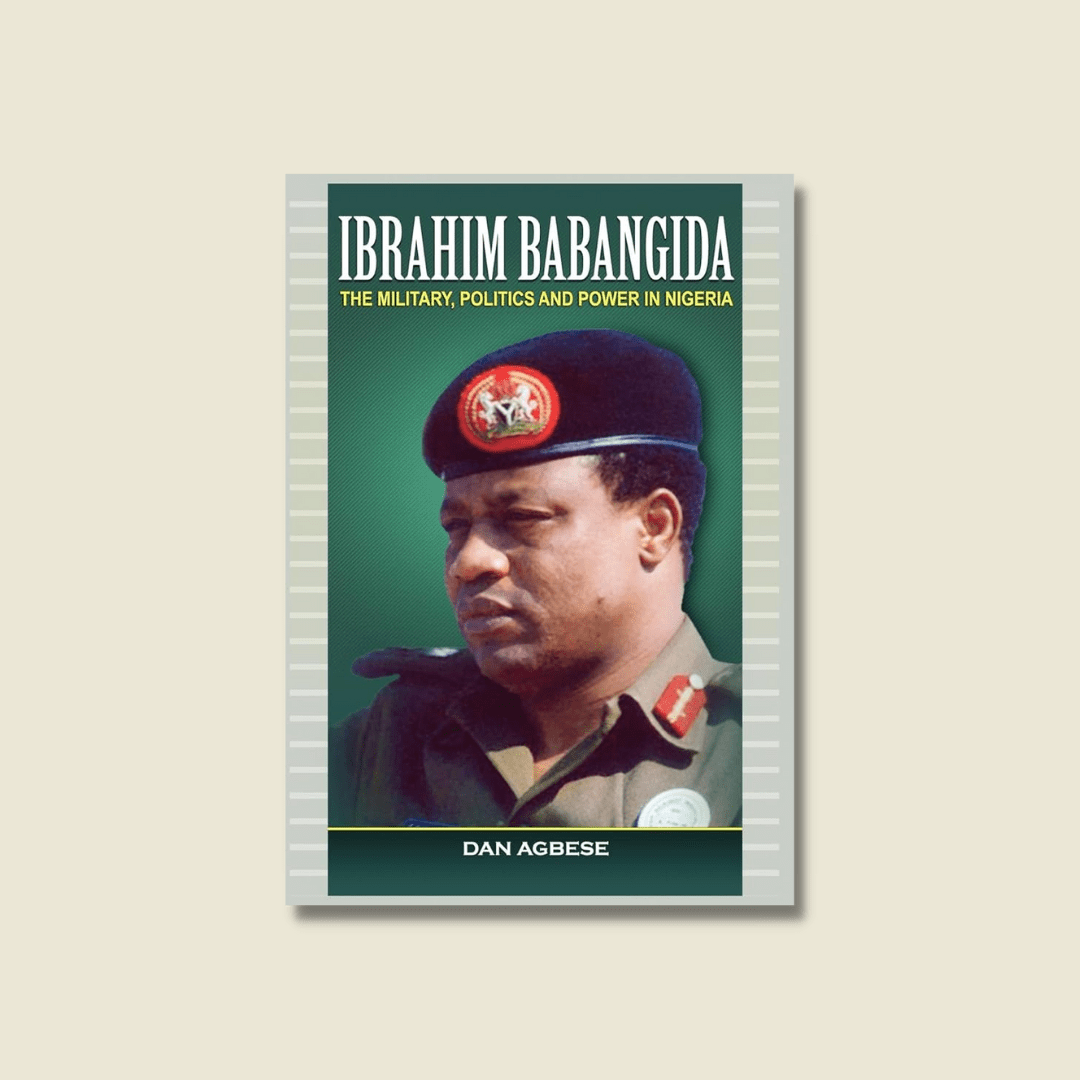
IBRAHIM BABANGIDA: THE MILITARY, POLITICS AND POWER IN NIGERIA
Author: DAN AGBESE
Genre: NON-FICTION
Nigeria has had a chequered political history before and since independence from British colonial rule on October 1, 1960. Two sets of actors—the civilian politicians and the military politicians—have been on the national political stage since January 15, 1966. General Ibrahim Badamasi Babangida (IBB) was one of them. In his eight years in power as military president, he affected the course of Nigeria’s events. It is not possible to tell Nigeria’s story without Babangida’s part in it.
The book is the story of IBB, the orphan from Minna, Niger State and his meticulous rise to the top of his profession and the leadership of his country. Perhaps, more importantly, it is the story of Nigeria, its post-independence politics and power, told from the perspective of the actions and decisions of one of the main actors on the country’s political stage. The events that shaped the Babangida era did not begin on August 27, 1985, the day he staged a palace coup against General Muhammadu Buhari. They began long before that. This book is the definitive story of the military, politics and power in Nigeria.
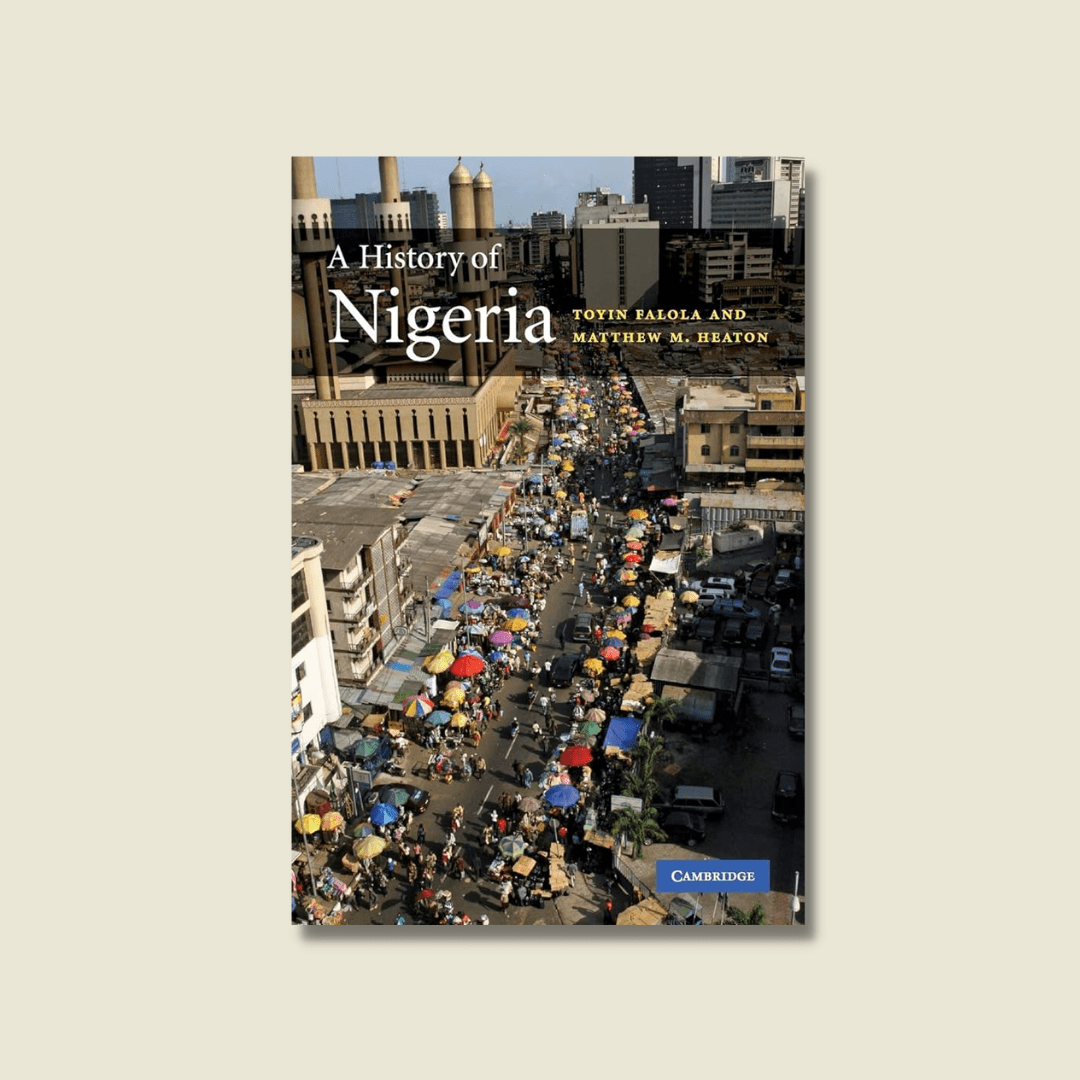
A HISTORY OF NIGERIA
AUTHOR: TOYIN FALOLA AND MATTHEW M. HEATON
GENRE: NON-FICTION
Nigeria is Africa’s most populous country and one of the world’s largest oil producer, but its success has been undermined in recent decades by ethnic and religious conflict, political instability, rampant official corruption and an ailing economy. Toyin Falola, a leading historian intimately acquainted with the region, and Matthew Heaton, who has worked extensively on African science and culture, combine their expertise to explain the context to Nigeria’s recent troubles through an exploration of its pre-colonial and colonial past, and its journey from independence to statehood. By examining key themes such as colonialism, religion, slavery, nationalism and the economy, the authors show how Nigeria’s history has been swayed by the vicissitudes of the world around it, and how Nigerians have adapted to meet these challenges. This book offers a unique portrayal of a resilient people living in a country with immense, but unrealized, potential.
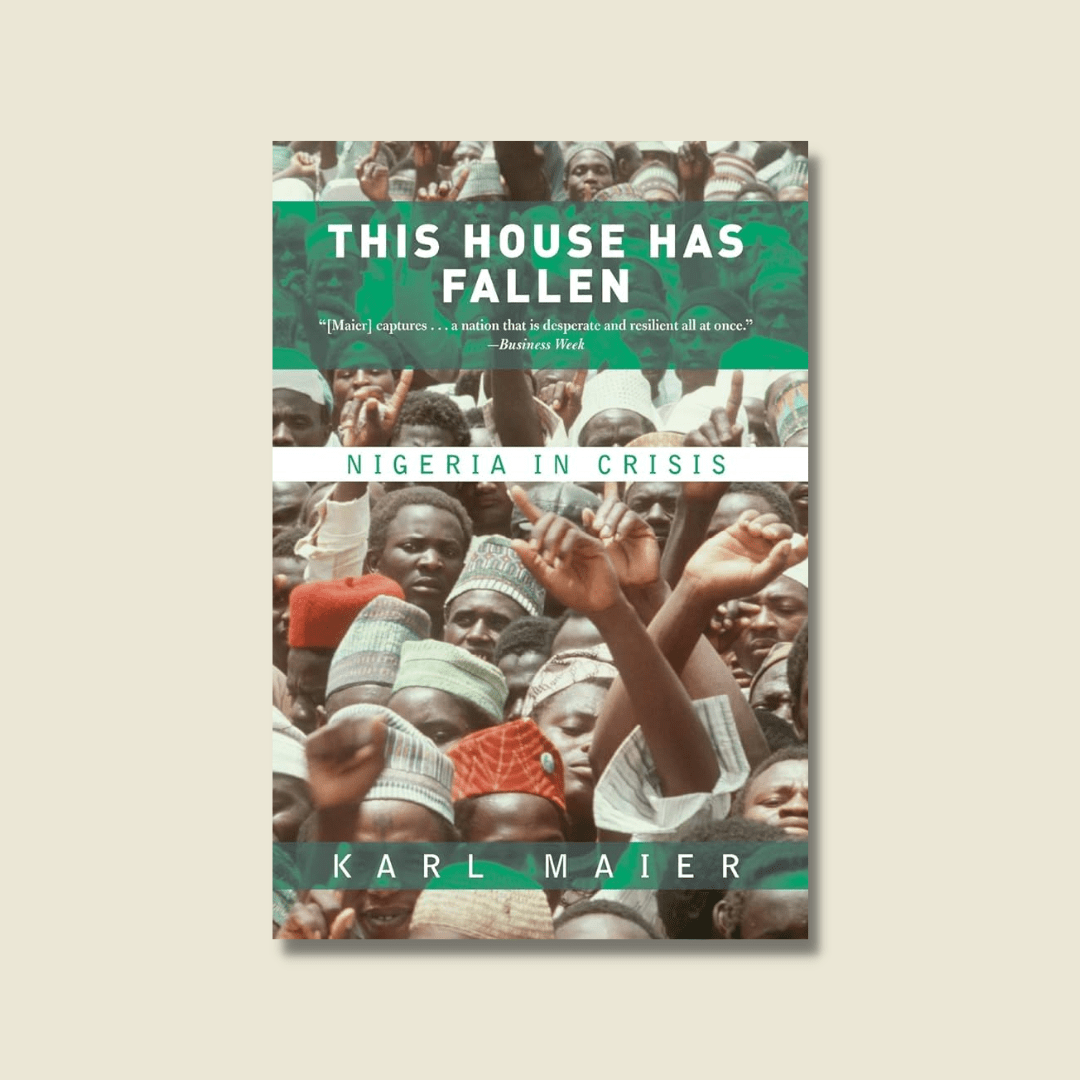
THIS HOUSE HAS FALLEN: NIGERIA IN CRISIS
AUTHOR: KARL MAIER
GENRE: NON-FICTION
This House Has Fallen is a comprehensive report on the state of Africa’s most populous, potentially richest, and most dysfunctional nation. Each year, with depressing consistency, Nigeria is declared as one of the most corrupt state in the entire world. Though Nigeria is a nation into which billions of dollars of oil money flow, its per capita income has fallen dramatically in the past two decades. Military coup follows military coup. A bellwether for Africa, it is a country of rising ethnic tensions and falling standards of living. A brilliant piece of reportage and travel writing, This House Has Fallen looks into the Nigerian abyss and comes away with insight, profound conclusions, and even some hope.
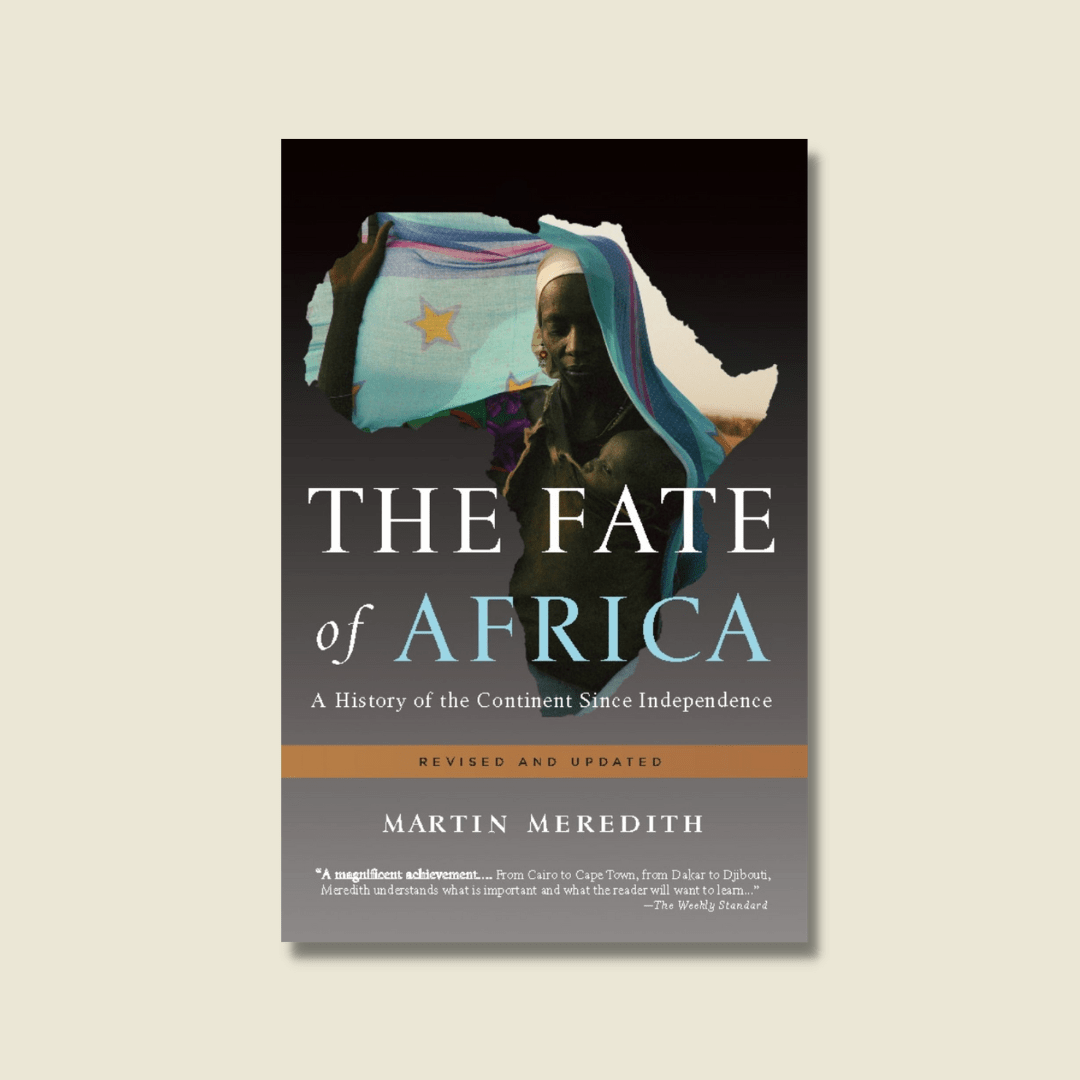
THE FATE OF AFRICA: A HISTORY OF FIFTY YEARS OF INDEPENDENCE
AUTHOR: MARTIN MEREDITH
GENRE: NON-FICTION
Fifty years ago, as Europe’s colonial powers withdrew, Africa moved with enormous hope and fervor toward democracy and economic independence. Dozens of new states were launched amid much jubilation and the world’s applause. African leaders, popularly elected, stepped forward to tackle the problems of development and nation-building.
Today, Africa is a continent rife with disease, death, and devastation. Most African countries are effectively bankrupt, prone to civil strife, subject to dictatorial rule, and dependent on Western assistance for survival. The sum of Africa’s misfortunes—its wars, its despotisms, its corruption, its droughts—is truly daunting.
What went wrong? Focusing on the key personalities, events and themes of the independence era, Martin Meredith’s riveting narrative history seeks to explore and explain the myriad problems that Africa has faced in the past half-century, and faces still. From the giddy enthusiasm of the 1960s to the ‘coming of tyrants’ and rapid decline, The Fate of Africa is essential reading for anyone seeking to understand how it came to this and what, if anything, is to be done.
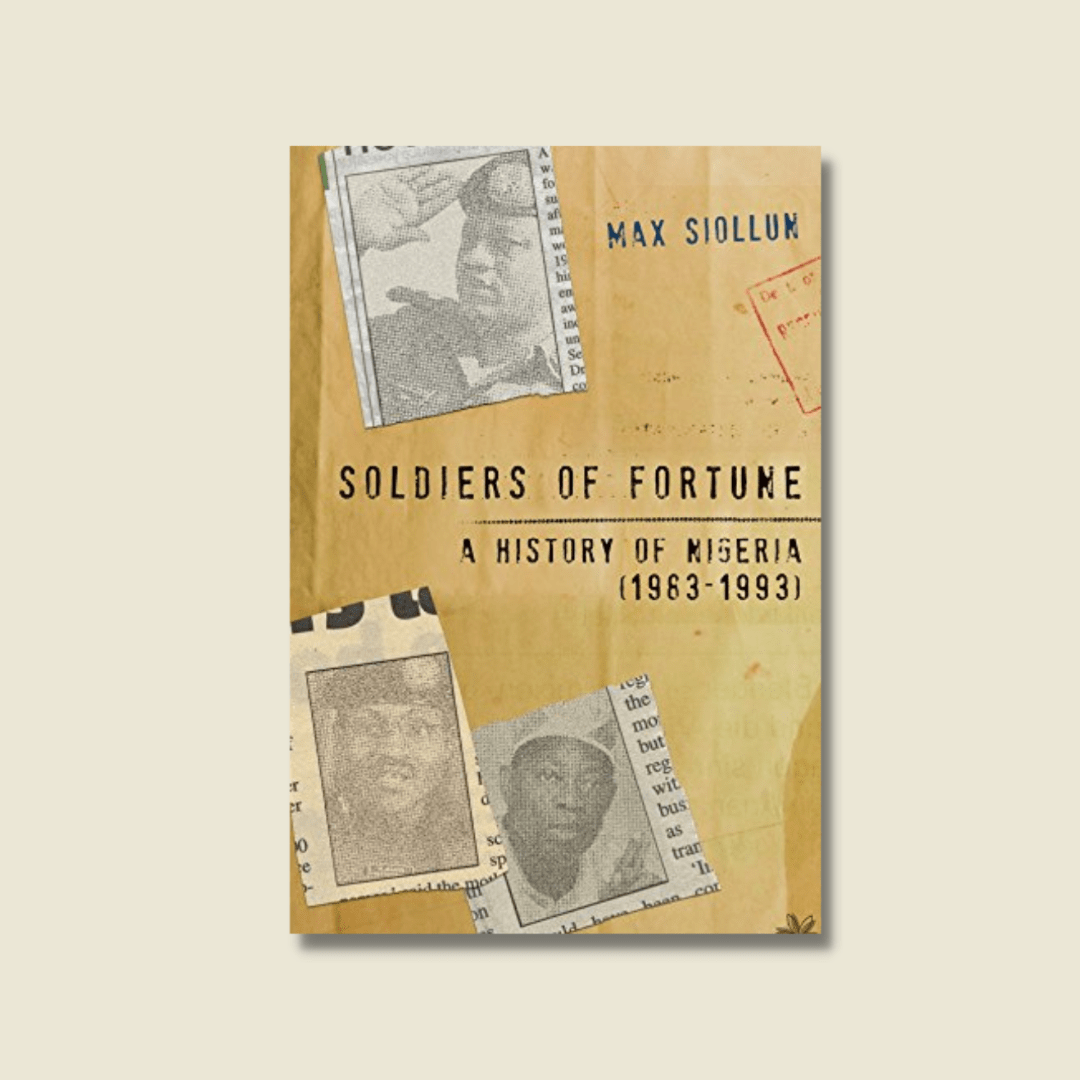
SOLDIERS OF FORTUNE: A HISTORY OF NIGERIA (1983-1993)
AUTHOR: MAX SIOLLUN
GENRE: NON-FICTION
The years between 1983 and 1993 were momentous for Nigeria. Military rule was a time of increased violence, rampant corruption, coups, coup plotting and coup baiting.
Soldiers of Fortune is a fast-paced and thrilling narrative of the major events of the Buhari and Babangida era. The book draws on previously uncovered observations from interviews conducted with insiders (including a former member of the Brigade of Guards and Nigerian Airways personnel who witnessed the attempted kidnap of Umaru Dikko), to compile step-by-step dramatic reconstructions of disputed events and intrigues. Siollun’s fresh perspective challenges preconceived views to reveal the true story behind controversies of the period: the annulment of the June 12 election, the dubious execution of Mamman Vatsa, the foiled kidnapping of Umaru Dikko, the Orkar coup and the inconclusive case of the assassination of Dele Giwa. Both gripping and informative, Soldiers of Fortune is a must-read for all Nigerians and Nigeria-watchers.
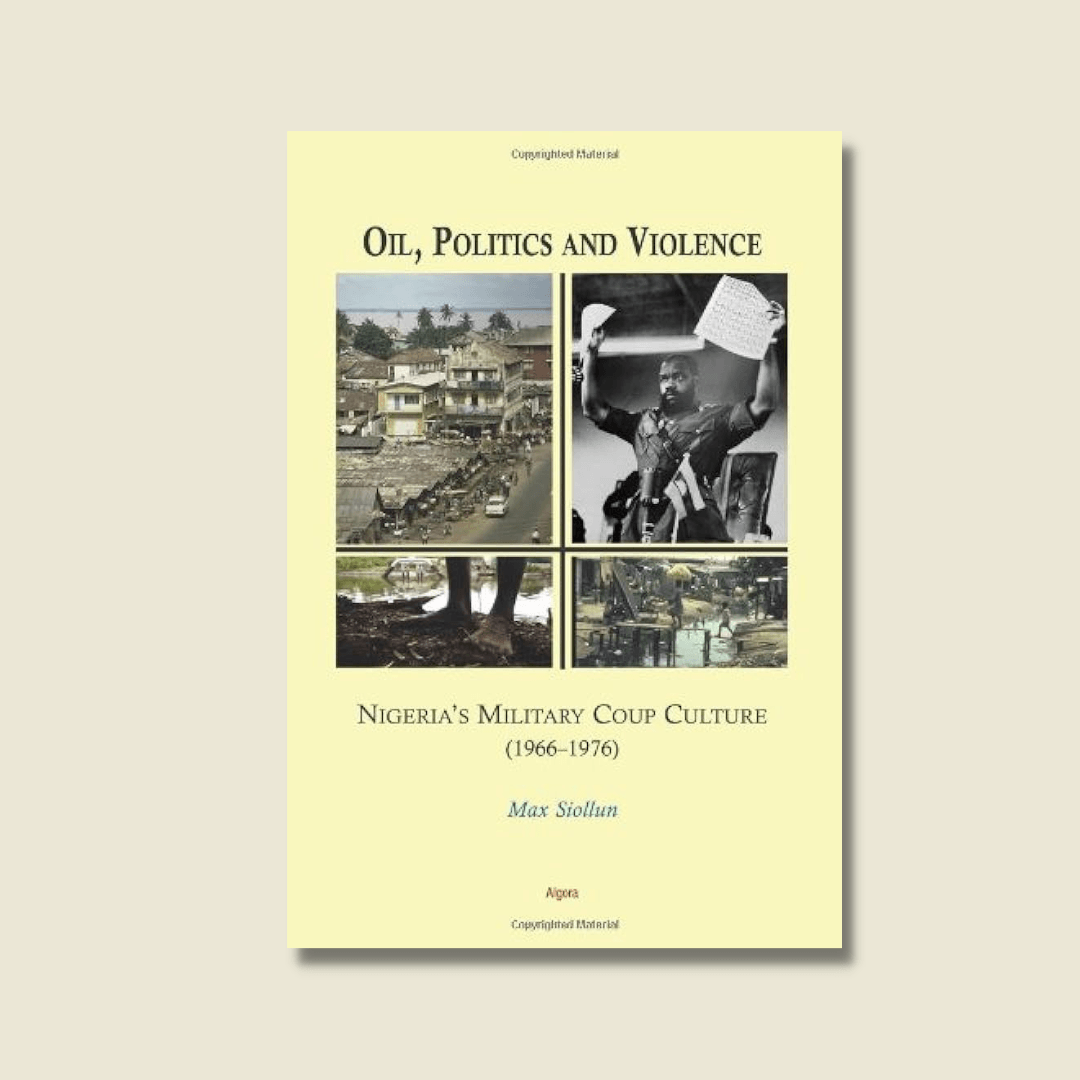
OIL, POLITICS AND VIOLENCE: NIGERIA’S MILITARY COUP CULTURE
AUTHOR: MAX SIOLLUN
GENRE: NON-FICTION
Modern Nigeria cannot be understood without reference to its era of military rule. Military rule and oil wealth effected cataclysmic changes in Nigeria that nearly tore the country apart on several occasions. 40 years after the end of the Nigeria-Biafra civil war, Max Siollun answers the key questions that go to the root of the Nigerian nation: Who were the key personalities and events that caused the Nigeria/Biafra civil war? What is the root of the Niger Delta oil conflict and the ‘curse of oil’? How has Nigeria managed to endure successive military coups, civil war, ethnic violence and still remain united? The role of Babangida, Ojukwu, Abacha, Obasanjo, Yar’Adua and Buhari in previous military coup plots and Nigerian governments. This book offers a detailed analysis of the major events and controversies of Nigeria from independence until the 1976 assassination of its then Head of State General Murtala Muhammed.
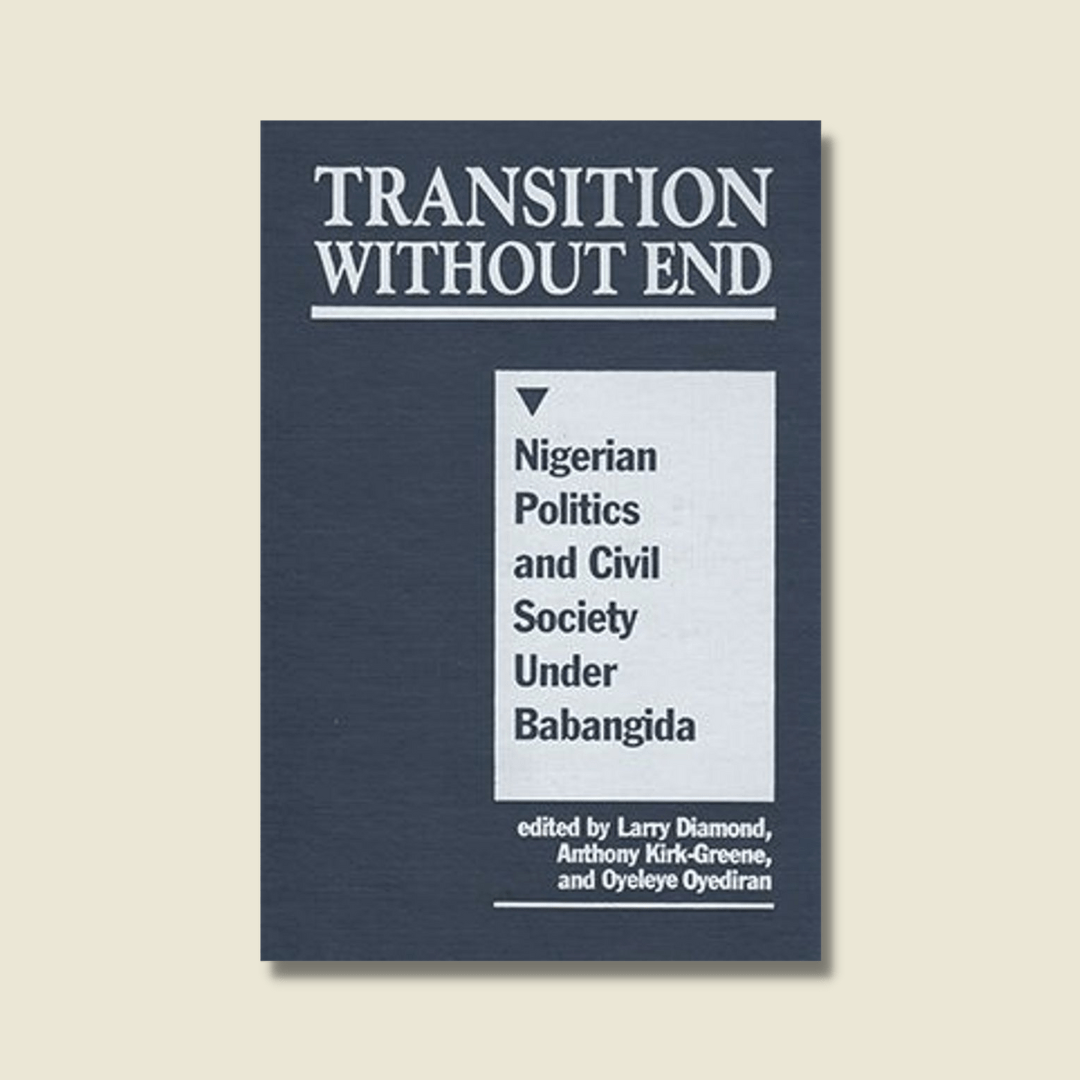
TRANSITION WITHOUT END: NIGERIAN POLITICS AND CIVIL SOCIETY UNDER BABANGIDA
AUTHOR: LARRY DIAMOND, ANTHONY KIRK-GREENE, AND OYELEYE OYEDIRAN
GENRE: NON-FICTION
Since 1986, Nigeria has been struggling without success to return to a civilian, democratic form of government: as political parties, presidential candidates, economic reform programs, and top military officers have come and gone, the country has become mired in an authoritarian limbo, a transition without end. This wide-ranging study examines the rise and fall of democratic transition and structural adjustment in Nigeria during the eight-year regime of General Ibrahim Babangida (1985-1993), chronicling the descent from the promise of reform and renewal to an unprecedented political and economic depression.
While showing the vibrancy of Nigeria’s democratic aspirations and civil society, the authors document the political and social fragmentation, corruption, cynicism, and repression that undermined Babangida’s transition program and brought its collapse in 1993. Providing both historical narrative and political analysis, they offer the most comprehensive treatment to date of Nigeria’s failed transition.


